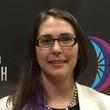
How a space medicine consortium helped its postdoc fellows “Go for Launch” during a pandemic
The COVID-19 pandemic ravaged the global job market leaving millions of people unexpectedly unemployed or furloughed. In April 2020, the U.S. unemployment rate jumped to a record 14.7 percent with 20.5 million people suddenly out of work - a level not seen since The Great Depression. While some industries were hit harder than others, all sectors felt the impacts of this unprecedented pandemic, including the science community and academia.
A Nature survey, published in September 2020, proved the pandemic was worsening the plight of postdoctoral researchers. More than 7,600 postdocs worldwide responded to the survey, spotlighting the great apprehension and uncertainty around the pandemic’s effect on current posts and career aspirations. Eight out of 10 postdocs reported that the global coronavirus pandemic hampered their ability to conduct experiments or collect data. Additionally, more than half found it harder to discuss their research ideas or share their work with their laboratory head or colleagues, and nearly two-thirds believed the pandemic negatively affected their career prospects.
The Translational Research Institute for Space Health (TRISH) alarmingly noticed the same trend with its third-year postdocs. Job opportunities were quickly disappearing, and the reality was that the next generation of scientists and space health researchers would be forced to find employment elsewhere. The “brain drain” needed to be plugged. In response, TRISH developed a new funding opportunity, “Go for Launch.”
“Go for Launch was designed to help and retain highly qualified individuals during stressful times, not only for TRISH’s benefit, but because it was the right thing to do,” said Zélia Worman, Ph.D., TRISH scientific program manager and lead for postdoctoral career development. “Transitioning to an independent position or getting a first job is a challenging step in early-career scientists, regardless of their career path. TRISH plans to continue offering the Go for Launch program in a post-pandemic world.”
The program facilitated the transition of TRISH fellows into independent research positions by providing support for salary and benefits for one year. It also incentivized prospective employers to accept these fellows, at least temporarily.
One fellow that was accepted into the “Go for Launch” program was Heather Allaway, Ph.D.
Allaway has always had a passion for women’s health research and while she could have taken a break and lived with family while working on manuscript writing to ride out the economic downturn, she decided to use the “Go for Launch” opportunity to further her research efforts and pave the way for scientific research that focuses specifically on female astronaut health.
"Like many other industries, the COVID-19 pandemic took a toll on the academic job market in a way we were not prepared for. The TRISH Go for Launch funding mechanism helped me continue my research while the rest of the world shut down," said Allaway. "I'm thankful to TRISH for developing this program as it was influential in allowing me to be more competitive in the job market. Now, I am starting my own lab at Louisiana State University. My research will continue to focus on multiple aspects of women's health, including in the space environment."
During space missions, female astronauts routinely use hormonal contraception methods to modulate their menstrual cycle. Use of hormonal contraceptives decrease natural estrogen and progesterone exposure and the positive influence of both hormones on bone health, leading to bone loss as a potential side effect. During her postdoctoral fellowship, Allaway studied the risks associated specifically of female crew member’s health during exploration class missions. She concluded that one particular method, implantable LARC, or long-acting reversible contraception, methods appeared to be a safe and viable option for premenopausal female astronauts selected for long-duration space missions.
In her “Go for launch” proposal, Allaway examined the combinatorial effects spaceflight and aging have on redox and nitric oxide signaling proteins and sex steroid receptor expression in the cardiovascular system, which is plays a key role in the functioning of organ systems related to health and performance for long-duration missions.
Allaway’s research helps to better understand what, if any, gender differences may develop during missions to enable a thoughtful medical preparedness and optimize the health of all crew members.
While the scars will remain in the economy even after the recovery from COVID, industries are beginning to rebound as vaccinated individuals reemerge and try to get “back to normal”. Colleges and universities are following suit as most U.S. institutions are preparing for in-person fall terms after more than a year of closures.
If you’re on Louisiana State University’s campus, you might run into Allaway. She is beginning her tenure track in the fall, joining as a new faculty member in the School of Kinesiology’s Exercise Physiology division, where she’ll continue studying gender differences in how things we modify in our lives like exercise, diet, use of hormonal contraception influences reproductive health, and the subsequent impacts on bone, muscle and performance.
And who knows, perhaps she’ll pay-it-forward, inspiring the next generation of postdoc fellows who will further our research and knowledge as we strive to safely put the first woman and the next human boot prints on the Moon or Martian surface.








